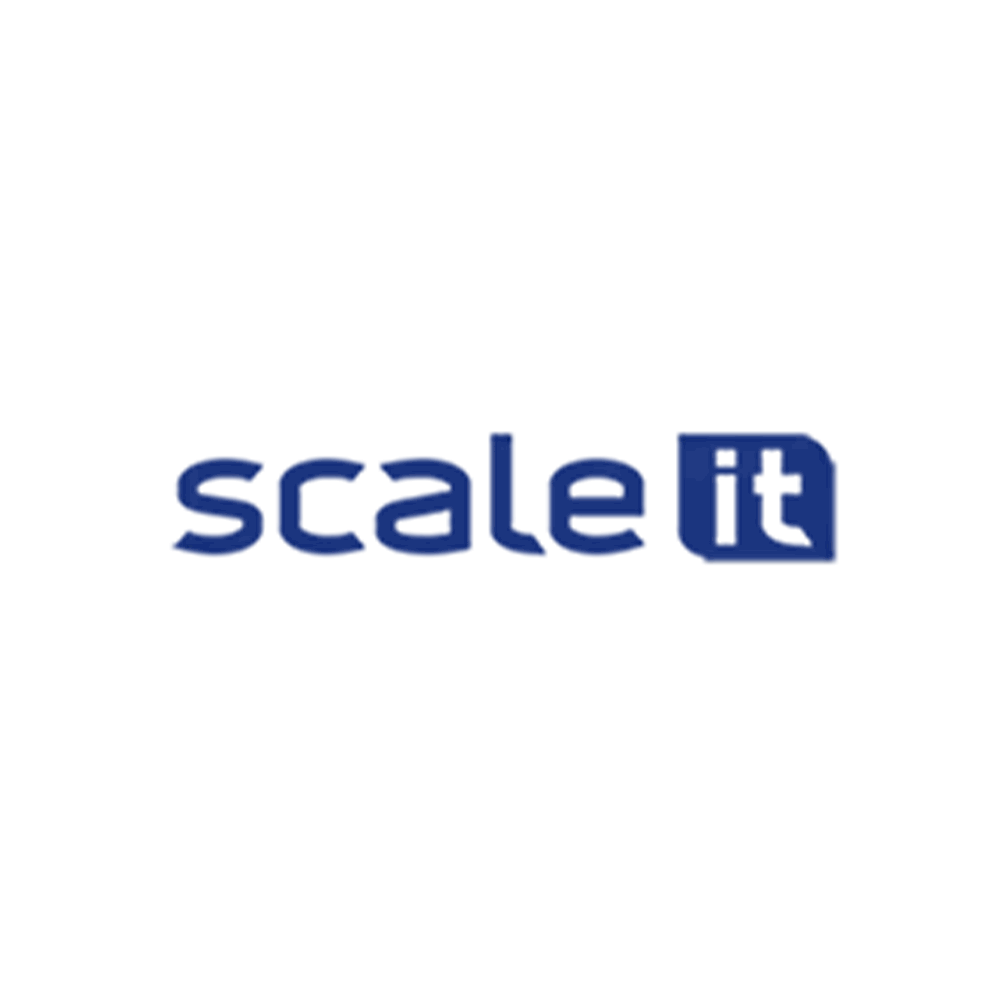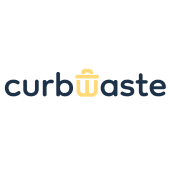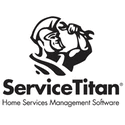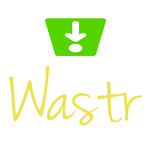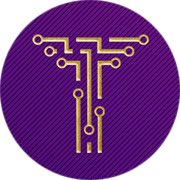Yes, Waste Management Software may be accessed from various devices and platforms. Many waste management software manufacturers provide a web-based platform that users can access from any device with an internet connection. Additionally, some vendors provide mobile applications for quick access on smartphones and tablets. This enables waste management organizations to run their operations efficiently from anywhere and at any time.
List of 20 Best Waste Management Software
Dumpster solution for safeguarding your deleted files, photos, and videos effortlessly. Featuring a user-friendly interface, cloud backup functionality, and secure data recovery, Dumpster is an essential tool for protecting your digital assets. Dont...Read More Dumpster
WasteWORKS solution for organizing solid waste management. This proven software has been relied on for over 35 years to simplify ticketing, billing, and reporting procedures. With convenient mobile accessibility, automated email functions, and depend...Read More WasteWORKS
GateHOUSE is a software solution designed to streamline your daily operations and boost productivity. Its intuitive interface and advanced features make even the most complex tasks effortless, making it a crucial tool for efficient workflow managemen...Read More GateHOUSE
Scaleit W8 is a hybrid scale management software specifically designed for various industries such as landfills, aggregate facilities, scrap yards, agriculture, and highway weigh stations. Our subscription plans are budget-friendly and cater to busin...Read More Scaleit W8
CurbWaste, the renowned clean-tech platform that is transforming the waste management sector. Through cutting-edge cloud-based and data-powered solutions, CurbWaste streamlines all aspects of waste management, promoting automation, transparency, and...Read More CurbWaste
Rubicon is an innovative software platform that offers cutting-edge waste and recycling solutions for both businesses and governments worldwide. Through our advanced technology, we are transforming the waste management industry, promoting environment...Read More Rubicon
Quentic: A comprehensive cloud-based EHSQ and ESG management software designed to simplify compliance, enhance safety, and promote sustainability for businesses of all sizes. With its multi-faceted features, Quentic empowers organizations to efficien...Read More Quentic
Haul-IT is a waste management software that streamlines operations and reduces expenses. Its intuitive features and real-time analytics allow companies to effectively manage routes, resources, and improve productivity. Say farewell to complicated was...Read More Haul-IT
Trash Flow is the leading waste management software designed specifically for waste haulers. Our user-friendly platform offers a wide range of features such as billing, route planning, roll-off management, and container tracking, to streamline your b...Read More Trash Flow
Wastebits is a software that transforms waste management processes for all businesses. With a centralized platform, it simplifies tracking, reporting, and resource usage, promoting efficiency and sustainability. This comprehensive solution offers cut...Read More Wastebits
Enablon Waste Management the software that is transforming the waste management industry. Utilizing cutting-edge technology, it simplifies waste management procedures, guarantees compliance with regulations, and fosters sustainability. Empowering com...Read More Enablon Waste Management
ServiceTitan is a highly regarded software platform that is widely adopted by leading home service companies. It offers an efficient solution for managing business processes, increasing sales, and enhancing the overall customer experience. Backed by...Read More ServiceTitan
RecycleProX is a software designed to streamline waste management processes and facilitate effective recycling initiatives. Its advanced tracking capabilities allow for seamless and eco-friendly management of recycling programs for various organizati...Read More RecycleProX
Wastr is a waste management software. Equipped with real-time tracking, automated analytics, and reporting capabilities, Wastr streamlines waste management for businesses, allowing them to boost productivity, cut costs, and promote sustainability sea...Read More Wastr
Propeller Mining - the leading software solution designed specifically for aggregate mining operations. Our advanced features, including cross section creation, pit optimization reporting, and 3D modeling, provide accurate data insights for improved...Read More Propeller Mining
TrackoBit is a fleet management solution that is compatible with more than 350 GPS tracking devices. Our platform provides a variety of telematics solutions such as fuel monitoring, tour management, and route planning, to enhance your fleets performa...Read More TrackoBit
ConnectTrak - an innovative software designed to streamline asset management for businesses of any size. With real-time tracking and comprehensive analytics, ConnectTrak offers a user-friendly platform for efficient fleet monitoring, leading to incre...Read More ConnectTrak
Samsara - an innovative software solution that revolutionizes fleet management, safety, and productivity for businesses. By leveraging IoT data and delivering real-time insights, Samsara simplifies operations and empowers businesses to make data-back...Read More Samsara
Whip Around solution for businesses, fleet managers, mechanics, and drivers to simplify their inspections and maintenance tasks. Our user-friendly software is accessible on desktop and mobile devices, ensuring convenience on the go. Streamline your o...Read More Whip Around
VelocityEHS is a software solution that streamlines and optimizes business operations. With features like incident management, compliance management, training management, and risk analysis, VelocityEHS enables businesses to effectively manage and imp...Read More VelocityEHS
Learn More About Waste Management Software
- What Is Waste Management Software?
- What Are The Recent Trends In Waste Management Software?
- Benefits Of Using Waste Management Software
- Important Factors To Consider While Purchasing Waste Management Software?
- What Are The Key Features To Look For In Waste Management Software?
- Why Do Businesses Need Waste Management Software?
- How Much Time Is Required To Implement Waste Management Software?
- What Is The Level Of Customization Available In Waste Management Software?
- Which Industries Can Benefit The Most From Waste Management Software?
- Conclusion
What Is Waste Management Software?
trash Management Software is a specialist software solution that assists businesses and organizations in managing their trash and recycling processes more efficiently. This software automates the entire waste management process, including waste collection and tracking, disposal, and recycling. One of the key functions of waste management software is to provide a complete tracking system for all trash and recycling activities.
This includes the capacity to monitor garbage bins, containers, and other disposal units, as well as waste itself. This enables organizations to correctly monitor their trash generation and disposal, identifying areas for improvement and cost-saving opportunities. Furthermore, waste management software provides comprehensive reporting and analytics capabilities, enabling firms to obtain useful insights into their waste management operations.
These reports can include essential information such as waste volume, recycling rates, and cost statistics, allowing businesses to make better educated decisions and improve their waste management procedures. Another important element of waste management software is its compatibility with other systems, such as accounting and inventory software. This connection improves waste management procedures by streamlining data administration and increasing accuracy and efficiency.
In terms of environmental sustainability, waste management software includes features for tracking and reporting on recycling efforts. This not only helps businesses meet regulatory requirements, but it also promotes environmentally responsible waste management practices. Overall, investing in waste management software can provide considerable benefits to businesses, such as cost savings, increased productivity, and enhanced sustainability practices. This program, which includes trash monitoring, reporting and analytics, and integration possibilities, is an invaluable resource for any firm trying to streamline its waste management processes.
What Are The Recent Trends In Waste Management Software?
trash management is an important component of every organization or sector, and with technological advancements, trash management software has grown in popularity in recent years. This program enables businesses and organizations to streamline their waste management procedures, resulting in increased efficiency and cost savings. To make an informed purchasing decision, buyers must keep up with the current innovations in waste management software.
Here are the most recent waste management software trends you should be aware of:
1. Integration Of Artificial Intelligence (AI): One key development in waste management software is the use of AI capabilities. This technology enables waste management software to analyze data, identify patterns, and anticipate outcomes. Waste management organizations can use artificial intelligence to discover areas for development and make data-driven decisions, resulting in better waste management practices.
2. Mobile Applications: Another trend in waste management software is the creation of mobile applications. These apps enable waste management companies to track and monitor waste pickups, arrange routes, and handle customer accounts using their mobile devices. This function increases the efficiency and convenience of waste management operations.
3. Cloud-Based Solutions: As cloud computing gains traction, waste management software is increasingly moving to the cloud. Companies may now access their data and applications remotely, allowing many individuals to collaborate and work in real time. It also provides the benefit of automatic updates, which ensure that waste management software is always up to date.
4. IoT Integration: The Internet of Things (IoT) has found its way into waste management software. Companies that connect waste bins and containers with sensors and trackers can monitor waste levels in real time and handle waste pickups more efficiently. This trend provides better efficiency, lower costs, and a more environmentally friendly approach to trash management.
5. Sustainability And Environmental Impact: In recent years, there has been a greater emphasis on sustainability and minimizing the environmental impact of garbage management. As a result, several waste management software providers are adding tools to track and monitor sustainability measures such as trash reduction, recycling, and greenhouse gas emissions.
Benefits Of Using Waste Management Software
Waste management software has transformed how businesses and organizations handle waste management procedures. This new software has emerged as a critical tool for businesses seeking to decrease costs, increase productivity, and comply with environmental standards.
Here are some of the major advantages of adopting waste management software.
1. Streamlined Waste Collection And Transportation: Waste management software automates and optimizes waste collection and transportation schedules. This guarantees that waste is collected and transported in the most efficient and cost-effective way possible, saving both time and money.
2. Real-Time Garbage Tracking: Waste management software enables garbage tracking in real time, from collection to disposal. This enables firms to monitor their waste generation and enhance waste reduction methods. It also ensures full transparency and compliance with garbage disposal rules and regulations.
3. Improved Inventory Management: Many waste management software solutions include inventory management tools that track the types and quantities of garbage produced by a firm. This information can be used to discover waste-reduction opportunities, resulting in cost savings.
4. Advanced Reporting And Analytics: Waste management software includes robust reporting and analytics features that provide useful information about waste generation and disposal trends. This enables firms to make data-driven decisions and uncover opportunities for development.
5. Cost Savings: By optimizing waste collection and transportation, organizations can drastically cut their waste management expenses. Furthermore, waste management software enables effective resource allocation, lowering wasteful costs.
6. Easy Compliance With Regulations: trash management software guarantees that firms follow trash disposal rules and regulations. It allows them to track and report on trash quantities and disposal methods, providing evidence of compliance during audits.
7. Improved Environmental Footprint: Effective waste management allows organizations to reduce their environmental impact and promote sustainability. trash management software allows you to measure and decrease trash, enabling a greener and more ecologically responsible attitude.
Important Factors To Consider While Purchasing Waste Management Software?
When choosing waste management software, purchasers should examine a number of crucial issues. These criteria will affect not only the software's performance and efficiency, but also the overall success of your organization's waste management methods.
As a professional content writer, I've developed a list of crucial elements that purchasers should consider when comparing waste management software solutions.
1. Scalability: The first consideration is the software's scalability. As your waste management requirements evolve, you must ensure that the software can accommodate this expansion and any changes to your procedures. Look for software that provides scalable solutions and the flexibility to add or remove features as needed.
2. Customization: Each firm has its own distinct waste management processes and requirements. As a result, it is critical to select software that is easily customizable to meet your individual requirements. This could entail designing custom reports or incorporating new waste streams into the system. Make sure the software is flexible enough to adapt to the needs of your firm.
3. Compatibility: Waste management software frequently integrates with other systems, such as accounting or inventory management. Consider the software's interoperability and integration capabilities with your existing systems. This will promote easy communication across systems and prevent data discrepancies.
4. User-Friendly Interface: To ensure that your waste management crew can properly utilize the program, select a user-friendly interface. The software should be simple to use and include clear instructions for all functionalities. This reduces your team's learning curve and ensures that the product is used efficiently.
5. Data Security: Waste management requires handling sensitive data, such as financial and personal information. Thus, it is critical to select software that prioritizes data security. Look for software that provides encryption and secure data storage to protect your firm from potential cyber threats.
6. Technical Help: When purchasing any software, it is critical to ensure that you have access to technical help in the event of any problems or inquiries. Look for software that provides trustworthy technical help, preferably around the clock. This will give you peace of mind and ensure that your waste management activities remain uninterrupted.
7. Cost: Finally, examine the cost of the software. While it is crucial to stay within budget, make sure you do not sacrifice quality for a reduced cost. Compare the software's features and benefits to its pricing to discover the greatest value for your firm.
What Are The Key Features To Look For In Waste Management Software?
Waste management is an important part of any business operation, and with increased awareness of sustainability and environmental effect, it has become a major priority for businesses of all kinds. Waste management may now be streamlined and more efficient thanks to technological advancements, such as waste management software.
If you want to invest in waste management software for your business, these are the essential elements to think about before making a decision:
1. Waste Tracking And Reporting: One of the most important features to look for in waste management software is the ability to track and report on waste generation, disposal, and recycling. This tool enables firms to clearly understand their waste management process and find areas for improvement. It also facilitates the tracking of waste-related data for compliance and reporting purposes.
2. Customization: Each organization has distinct waste management requirements, and a one-size-fits-all solution may not be appropriate for your specific needs. Look for software that enables for customization, such as adding new fields or configuring workflows to match your company procedures.
3. Mobile Compatibility: In today's fast-paced work environment, having access to data on the go is critical. Choose waste management software that is mobile-friendly, allowing you to access critical information, update records, and track waste data from anywhere, at any time.
4. Integration With Third-Party Systems: Your company may already use other software for operations such as inventory management, accounting, or CRM. It is critical that the waste management software you select integrates easily with these systems to reduce data duplication and increase overall efficiency.
5. User-Friendly Interface: You don't want your waste management software to be confusing and difficult to use, which would lead to user irritation and noncompliance. Look for software with an easy-to-use interface to ensure that all staff can enter data quickly and easily.
6. Compliance And Regulatory Support: Waste management standards are constantly evolving, therefore it is critical to use software that is up to date and comply with these regulations. Look for automated reports, compliance checks, and regulatory change alerts.
7. Scalability: As your firm expands, so will your waste management requirements. Invest in software that can scale with your company, whether by adding new features or handling a larger number of waste data.
Why Do Businesses Need Waste Management Software?
Businesses require waste management software for a variety of reasons, including cost savings, regulatory compliance, and increased efficiency. With a growing emphasis on sustainability and environmental effect, waste management has become an essential component of business operations. To properly manage garbage, organizations require a comprehensive and dependable software solution.
Here are some important reasons why investing in trash management software is a must for any organization trying to streamline their waste management processes:
1. Cost Savings: Waste management software can save firms money in a variety of ways. Businesses that accurately measure and analyze waste streams can find places where they can minimize waste and save money. They can also better manage their waste pickup schedules and cut unnecessary costs.
2. Regulatory Compliance: Waste management software enables firms to comply with local and federal waste rules. Businesses can avoid costly fines and penalties by using real-time tracking and reporting tools to verify that they meet all waste disposal regulations.
3. Streamlined Operations: By automating waste management procedures, firms can increase overall efficiency while saving time. Waste management software automates the entire waste management process by including functions such as scheduling, tracking, and automatic reporting, allowing personnel to focus on more vital activities.
4. Improved Sustainability: Trash management software helps organizations understand their trash generation and disposal behaviors, making it easier to identify areas for improvement and apply sustainable practices. Businesses may help to improve the environment by minimizing trash.
5. Data Management And Analysis: Waste management software enables firms to collect and analyze data on waste generation, disposal costs, and sustainability initiatives. This data can assist firms in making informed decisions regarding their waste management procedures, identifying trends, and setting targets for improvement.
How Much Time Is Required To Implement Waste Management Software?
The time necessary to adopt waste management software will vary depending on a number of factors, including your organization's size, the complexity of your waste management operations, and the unique features and customization required for your firm. However, on average, the implementation phase can last from a few weeks to a few months.
The first step is to determine your waste management software's specific requirements and aims. This will assist in determining the features and functionalities you require, which may effect the implementation timetable. Next, select a software provider and complete the onboarding procedure. This normally includes creating your account, adjusting settings, and importing data.
After the program has been installed, you and your team may be required to attend training and orientation sessions to become acquainted with the product and its features. This can take anywhere from a few days to several weeks, depending on the complexity of the software and the size of your team. The next step is to test and refine the software to ensure that it satisfies your business requirements and integrates seamlessly with your current procedures.
This testing stage can last several weeks or months, depending on the level of customization and complexity of your waste management procedures. Finally, once the program has been fully tested and is ready for implementation, the transition from your old waste management system to the new software might take anything from a few days to a week. It is critical to allow enough time for appropriate installation to avoid disruptions to your waste management activities.
It is also recommended that your staff participate in the implementation process to guarantee a smooth transition and acceptance of the new software. Overall, the time spent implementing waste management software is a beneficial investment that can result in increased efficiency, cost savings, and better waste management practices for your firm.
What Is The Level Of Customization Available In Waste Management Software?
garbage management software is an effective tool for firms to manage and monitor their garbage collection, disposal, and recycling activities. One of the primary aspects that distinguishes waste management software is its customization capabilities. The level of customisation offered by waste management software varies based on the product and its provider. However, most waste management software packages provide a high level of customisation to match each company's specific demands. At its heart, waste management software enables customers to build and customize waste pickup schedules, routes, and service areas based on their location, waste type, and frequency of collection. This level of personalization ensures that waste management procedures are tailored to each specific firm while remaining as efficient as feasible.
Waste management software often provides more advanced customization possibilities, such as:
1. Reporting: Waste management software enables users to generate customized reports based on their individual data requirements. This function is critical for monitoring waste creation trends, finding areas for improvement, and determining the effectiveness of waste management activities.
2. Billing And Invoicing: Many waste management software solutions offer adjustable billing and invoicing options, allowing customers to design bespoke rate structures and pricing plans depending on their specific waste management requirements.
3. Integration: Waste management software frequently connects with other corporate management systems, such as accounting or CRM software. This integration enables cross-platform customization and improves waste management operations.
4. Mobile View: With customizable mobile applications, customers may view and manage waste management data while on the road. This function is particularly useful for trash management organizations with field-based staff.
Which Industries Can Benefit The Most From Waste Management Software?
Waste management is an important part of every business or sector. Proper waste management not only helps to reduce environmental impact, but it also saves money and improves efficiency. As waste management processes become more complex and regulated, many companies are relying on waste management software to streamline their operations. So, which industries would gain the most from waste management software?
Let's have a closer look.
1. Manufacturing Industry: The manufacturing business generates a significant amount of waste, from raw materials to final products. Waste management software can assist manufacturers in tracking and managing their waste streams, providing insight into the type and quantity of waste produced, facilitating proper disposal, and lowering waste disposal costs. It also assists in discovering chances for recycling and reusing resources, hence increasing sustainability.
2. Healthcare Industry: Hospitals and healthcare facilities generate large amounts of garbage, particularly hazardous medical waste. garbage management software can help manage garbage from generation to final disposal while maintaining compliance with safety and environmental requirements. It also aids in the collection and analysis of waste data, the identification of prospective areas for waste reduction, and the implementation of efficient and cost-effective disposal techniques.
3. Retail Industry: The retail industry generates a diverse range of trash, including extra packaging, perishable commodities, and damaged merchandise. Retailers can use waste management software to measure their waste, create waste reduction strategies, reduce disposal costs, and improve overall sustainability performance. It can also aid in discovering opportunities for recycling and giving, so supporting a circular economy.
4. Hospitality Industry: Hotels, resorts, and restaurants generate a large quantity of trash, including food and disposable products. Waste management software enables the hotel industry to conveniently measure waste output, streamline disposal operations, and find potential for waste reduction. It also aids in the efficient management of food waste, cost reduction, and environmental sustainability.
5. Construction Industry: The construction sector generates a large amount of garbage, including building materials and demolition waste. Construction businesses can utilize waste management software to track and manage their trash, ensuring compliance with waste rules, reducing disposal costs, and promoting material recycling and reuse. It also provides real-time statistics on waste generation, enabling for more informed waste management decisions.
Conclusion
To summarize, Waste Management Software is a crucial tool for businesses and organizations seeking to streamline their waste management procedures. This software provides a comprehensive solution for efficient and sustainable trash management, including tracking waste disposal services, managing recycling initiatives, and ensuring regulatory compliance. After examining a variety of variables, select waste management software that suits your individual requirements and budget.
Some important factors to consider when making a decision include the type and size of your organization, the software's features and capabilities, integration options with existing systems, and customer support and training services. Furthermore, it is critical to choose a reliable and knowledgeable software vendor who provides regular upgrades and support to maintain the product's smooth performance.
Furthermore, given the software's environmental impact, it is worthwhile to look at providers with a strong focus on sustainability and eco-friendliness. Overall, using Waste Management Software can help businesses and organizations save money, increase efficiency, and comply with waste management standards. By carefully assessing company requirements and selecting the appropriate software vendor, you can efficiently manage your waste and contribute to a more sustainable future.
Waste Management Software FAQ's
Can Waste Management Software Be Accessed Across Multiple Devices And Platforms?
Is Waste Management Software Future-Proof And Adaptable To Emerging Technologies Like AI, Blockchain Or IoT?
Waste management software is always evolving and adapting to keep pace with new technology. Many waste management software systems already use AI, blockchain, and IoT to improve their capabilities. This makes them future-proof and capable of meeting the evolving needs of the industry.
Waste management software that incorporates these technologies can improve efficiency and accuracy while also providing useful insights and data for better decision-making. Waste management software is prepared to face future issues thanks to ongoing technological improvements.
Is There A Free Trial Offered To Assess Waste Management Software Before Committing?
Yes, many waste management software vendors provide a free trial period to allow customers to evaluate their program before making a purchase decision. This enables customers to try the software's features, functionality, and user interface to see whether it is a good fit for their requirements. Make sure to use the free trial to fully understand the software's capabilities and make an informed selection.
Does Waste Management Software Offer Data Security Features And Meet Regulatory Compliance Standards?
Yes, most waste management software solutions have data security capabilities and are intended to meet regulatory compliance requirements. These features may include data encryption, user access limits, regular data backups, and audit trails to assure the data's security and integrity.
Furthermore, waste management software often follows industry-specific requirements established by the Environmental Protection Agency (EPA) and the Occupational Safety and Health Administration (OSHA). This ensures that your waste management procedures are in line with legal and environmental regulations.
Can Waste Management Software Integrate Seamlessly With Existing Tools And Platforms?
Yes, waste management software can work perfectly alongside existing tools and platforms. It is designed to work with a variety of systems and may be easily integrated with your existing software and processes. This provides for a smooth transition and avoids the need for further training or changes to workflow. Waste management software also includes advanced integration features such as APIs and webhooks, allowing for a more streamlined and effective operation.




